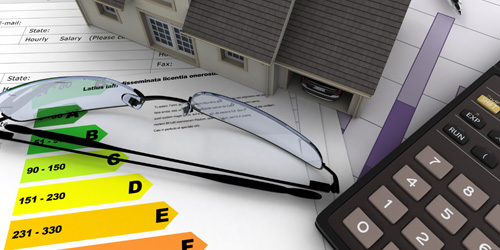

A House of Commons report into the Green Deal has called the scheme a failure, describing it as "flawed" and "inefficient" with "poor implementation".
After inviting figures from across the sector to give evidence about the Green Deal between April and June 2014, the report was released today (15 September), in which the Committee's verdict was that the first eighteen months of the Green Deal have "been largely wasted".
It said the Green Deal had "failed to live up to expectations: its planning was flawed, its funding inefficiently delivered, and its implementation has been poor. These problems have all been aggravated by poor communication. Rather than facilitating access to energy efficiency measures and creating momentum in the market, the Green Deal has caused frustration and confusion for both consumers and the supply chain".
The report said the fundamental aim of the Green Deal - to retrofit the existing UK housing stock and lower carbon emissions - was ambitious and worthwhile, but it blamed financial, communication and behavioural barriers for disillusioning and alienating potential customers and partners. These barriers must be addressed, according to the Committee, if the scheme is to move forward.
The Energy and Climate Change Committee made a number of recommendations, urging the government to set out a "clear strategy to revive the failing scheme". It called on the government to deal with the criticisms surrounding the poor take-up of the Green Deal, and said DECC should clarify what it expects the Green Deal to be used for and produce clear consumer guidance as to the different ways in which Green Deal finance can be used (for example, in isolation of in combination with other schemes and initiatives".
Addressing the issues surrounding the financing of the scheme, the report described DECC's current offer as "burdensome and limiting". It said the package needs to be made more attractive to a wider group of consumers and, while acknowledging that DECC may be unwilling to subsidise the loans in order to lower interest rates on Green Deal finance, it said there may be other financial opportunities available which could be more attractive to customers.
The Golden Rule has been criticised by industry for being too conservative in its estimates on energy savings, and the report said while it recognised the consumer must be protected, that DECC should still be able to offer a better deal for its customers. It suggested that government consider reviewing the way the Golden Rule is calculated. Other financial incentives such as stamp duty discounts and variable council tax rates for more energy efficient households, as well as other measures and regulations, "should also be experimented with".
Concerns have recently been raised that customers in rural areas have found it difficult to find a Green Deal provider, as the providers have been reluctant to provide their services on the grounds of distance.
As well as a national communications campaign, the report said the government must ensure the involvement of local authorities and associations, describing this as pivotal to the successful implementation of the Green Deal.
John Alker, director of policy and Communications at the UK Green Building Council, who gave evidence to the Committee, said: "This influential cross-party committee has now added its voice to a crescendo of industry and independent experts, who have long called for greater incentives to boost demand for energy efficiency and the Green Deal. Energy efficiency is too great an untapped opportunity for this message to fall on deaf ears once again. Government needs to treat energy efficiency as a national infrastructure priority, which means a long-term programme of incentives and support, enabling the private sector to get on and deliver lower bills for householders."
In response to the report, Energy and Climate Change Secretary Ed Davey said: “We share the committee’s ambition to drive a step-change in home energy efficiency – helping to cut carbon emissions and control energy bills. Our target is to improve the energy efficiency of one million homes by March 2015 – and we’re on track. £540 million has been committed and as of June we have improved over 750, 000 homes.”
The full report can be downloaded from http://www.publications.parliament.uk/pa/cm201415/cmselect/cmenergy/348/348.pdf
If you'd like to keep up-to-date with the latest developments in the heating and plumbing industry, why not subscribe to our weekly newsletters? Just click the button below and you can ensure all the latest industry news and new product information lands in your inbox every week.